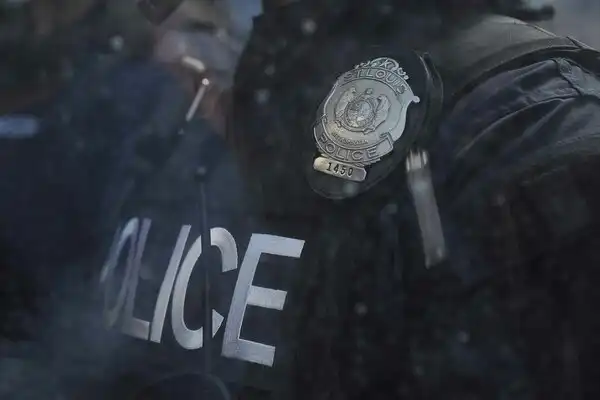
Gilbert was in handcuffs and leg irons while police held him down, according the suit brought by his father, Jody Lombardo. Prior to his death, Gilbert had attempted to hang himself in the cell and he struggled after officers placed him face down, while calling out, “It hurts. Stop,” the court said.
“It's not clear whether the [appeals] court thought the use of a prone restraint — no matter the kind, intensity, duration, or surrounding circumstances — is per se constitutional so long as an individual appears to resist officers’ efforts to subdue him,” the Supreme Court opinion said. It added that the use of leg shackles and handcuffs and the duration of the time Gilbert was kept face-down “appear potentially important” and the appeals court ruling did not delve into those issues.
The high court looked to admonish the appeals court judges by saying the case was being returned to them “to give the court an opportunity to employ an inquiry that clearly attends to the facts and circumstances in answering those questions in the first instance.”
However, the harsher criticism Monday came from Justice Samuel Alito in a dissenting opinion that argued most of his colleagues had chickened out by failing to grant full review in the case and have it argued before the justices.
“The Court, unfortunately, is unwilling to face up to the choice between denying the petition (and bearing the criticism that would inevitably elicit) and granting plenary review (and doing the work that would entail),” Alito wrote in an opinion joined by Justices Clarence Thomas and Neil Gorsuch.
The high court’s divide on the case emerged amid an intense national debate over use of force by police and just three days after the sentencing of a Minneapolis police officer, Derek Chauvin, to 22.5 years in prison for second-degree murder for kneeling on the neck of a suspect, George Floyd, for about nine minutes.
While Floyd was Black and his death fueled anger over racial discrimination in policing, Gilbert was white. However, both episodes have prompted calls for police to end the use of dangerous restraint techniques that can interfere with suspects' breathing and exacerbate medical conditions.
In the high court ruling released Monday, Alito said the majority had offered an implausible reading of the 8th Circuit’s decision to avoid squaring up to the issues presented by Gilbert’s parents’ suit.
“This course of action may be convenient for this Court, but it's unfair to the Court of Appeals. If we expect the lower courts to respect our decisions, we should not twist their opinions to make our job easier,” the George W. Bush appointee wrote.
Alito said the 8th Circuit could not have possibly meant that use of a prone restraint was always constitutional.
“Suppose officers with a combined weight of 1,000 pounds knelt on the back of a frail and infirm detainee, used all their might to press his chest and face into a concrete floor for over an hour, did not desist when the detainee cried, ‘You’re killing me,’ and ended up inflicting fatal injuries. Does the [Supreme] Court really believe that the Court of Appeals might have thought that this extreme use of force would be reasonable?”
Alito said he had reached no conclusion on the suit over Gilbert’s death and that while “some degree of force” was reasonable under the circumstances, the officers inflicted serious injuries to him.
“We've two respectable options: deny review of the fact-bound question that the case presents or grant the petition, have the case briefed and argued, roll up our sleeves, and decide the real issue. I favor the latter course, but what we should not do is take the easy out that the Court has chosen,” Alito wrote.
The court’s unsigned four-page opinion addressed Alito’s criticism only briefly, saying in a footnote that while the dissenters wanted to give the appeals court “the benefit of the doubt,” it was “more prudent” to return the case to the lower court for further explanation.